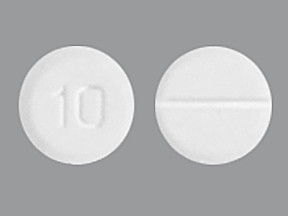HYOSCYAMINE - ORAL
PHONETIC PRONUNCIATION: (hi-oh-SYE-uh-meen)
COMMON BRAND NAME(S): Anaspaz, Cystospaz, Donnamar, Levsin
GENERIC NAME(S): hyoscyamine sulfate
Uses
USES: Hyoscyamine is used to treat a variety of stomach/intestinal problems such as cramps and irritable bowel syndrome. It is also used to treat other conditions such as bladder and bowel control problems, cramping pain caused by kidney stones and gallstones, and Parkinson's disease. In addition, it is used to decrease side effects of certain medications (drugs used to treat myasthenia gravis) and insecticides. This medication works by decreasing acid production in the stomach, slowing down the natural movements of the gut, and relaxing muscles in many organs (e.g., stomach, intestines, bladder, kidney, gallbladder). Hyoscyamine also lessens the amount of certain body fluids (e.g., saliva, sweat). This medication belongs to a class of drugs known as anticholinergics/antispasmodics.
How to use HYOSCYAMINE - ORAL
HOW TO USE: Take this medication by mouth as prescribed, usually 30-60 minutes before meals, or as directed by your doctor. Dosage is based on your medical condition and response to therapy. Do not increase your dose or take it more often than prescribed without consulting your doctor. Adults and children 12 years and older should not take more than 1.5 milligrams in 24 hours. Children aged 2 to 12 years should not take more than 0.75 milligrams in 24 hours. Ask your doctor or pharmacist for more information. Antacids lower the absorption of hyoscyamine. If you use antacids, take them after meals and take hyoscyamine before meals; or take antacids at least 1 hour after taking hyoscyamine. Drink plenty of fluids while taking this medication unless your doctor directs you otherwise. Inform your doctor if your condition persists or worsens.
Side Effects
Precautions
Interactions
Overdose
Images
Reviews
Faq for HYOSCYAMINE - ORAL
Hyoscyamine is used to relieve symptoms of certain gastrointestinal conditions such as irritable bowel syndrome and peptic ulcers.
Hyoscyamine belongs to a class of drugs called anticholinergics, which work by blocking the action of certain chemicals in the body that cause muscle spasms and contractions in the gastrointestinal tract.
Common side effects of hyoscyamine include dry mouth, blurred vision, dizziness, drowsiness, constipation, and difficulty urinating.
The recommended dosage of hyoscyamine may vary depending on the condition being treated and the individual's response to the medication. It is typically taken 30 minutes before meals and at bedtime.
Hyoscyamine may interact with certain medications such as antihistamines, antidepressants, and muscle relaxants. It is important to inform your doctor about all the medications you are taking to avoid potential drug interactions.
It is advisable to consult with your doctor before using hyoscyamine during pregnancy or breastfeeding, as its safety in these situations has not been well-established.
If you miss a dose of hyoscyamine, take it as soon as you remember. However, if it is close to the time for your next dose, skip the missed dose and resume your regular dosing schedule. Do not double the dose to catch up.
Hyoscyamine is generally not recommended for use in children unless specifically prescribed by a doctor.
It is important to avoid activities that require mental alertness and coordination while taking hyoscyamine, as it may cause drowsiness and dizziness. Also, avoid excessive heat as hyoscyamine can interfere with the body's ability to regulate temperature.
Disclaimer
IMPORTANT: HOW TO USE THIS INFORMATION: This is a summary and does NOT have all possible information about this product. This information does not assure that this product is safe, effective, or appropriate for you. This information is not individual medical advice and does not substitute for the advice of your health care professional. Always ask your health care professional for complete information about this product and your specific health needs.

No Reviews Yet